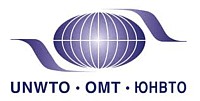 UNWTO and the Town Council of Palma signed today an agreement establishing Palma as the first pilot costal destination to join the Hotel Energy Solutions (HES) project. Over the coming months, the twenty five participating hotels in Palma de Majorca will test the beta version of the HES e-toolkit, a specialized online tool enabling them to assess their current energy needs and prioritize investment in energy.
UNWTO and the Town Council of Palma signed today an agreement establishing Palma as the first pilot costal destination to join the Hotel Energy Solutions (HES) project. Over the coming months, the twenty five participating hotels in Palma de Majorca will test the beta version of the HES e-toolkit, a specialized online tool enabling them to assess their current energy needs and prioritize investment in energy.
The agreement, signed by UNWTO Executive Director, Márcio Favilla, and the President of the Palma Municipal Tourism Institute (IMTUR), Ms. Joana María Borràs, represents a recognition and contribution to Palma’s effort in building a sustainable destination. This UNWTO-led initiative aims to help small and medium sized hotels across the European Union to increase their use of energy efficiency and renewable energy.
Palma’s commitment to environmentally friendly tourism was confirmed when it became the first city to implement the UNWTO Davos Declaration on Tourism and Climate Change – urging the tourism sector to adopt sustainable practices – through its campaign, ‘Palma, Responsible Tourism’.
“We are delighted to join hands with Palma in its major undertaking of renewing itself as a sustainable tourism destination of the highest level. Palma will be the first coastal destination to join the HES project and this is no surprise given its commitment to a strong sustainability agenda” said Mr. Favilla.
“Thanks to the Hotel Energy Solutions project, hotels in Palma will be able to reduce their operational costs while increasing competitiveness, promoting sustainability and mitigating the sector’s impact on climate change,” said Ms. Borràs.
Palma de Majorca, one of Europe’s major coastal destinations, will join three other HES pilot destinations covering mountain, urban and rural destinations: Haute-Savoie (France), Bonn (Germany), and Strandja (Bulgaria).
The HES project aims at increasing energy efficiency in the European Union small and medium hotels by 20% and the use of renewable energy by 10%. The HES e-toolkit will permit participating hotels to assess their energy use and decide on the most advantageous technology investments. Investment in energy efficiency and renewable energy technologies can deliver significant returns, while reducing hotels’ carbon footprint.
The e-toolkit will be made available free of charge at the beginning of 2011 to all accommodation units registered with the project. UNWTO invites all European Union accommodation proprietors to join the Hotel Energy Solutions initiative by providing their details on the project’s website: www.hotelenergysolutions.net.











